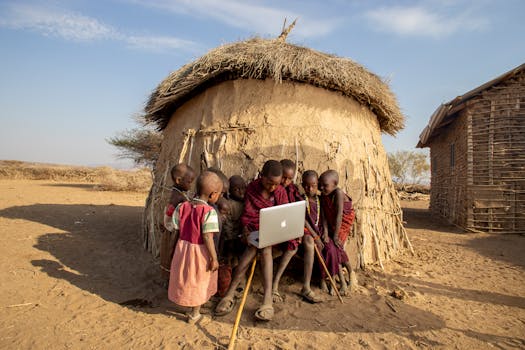
Empowering Communities: The Impact of Fiber Companies on Rural Connectivity in Africa
Empowering Communities: The Impact of Fiber Companies on Rural Connectivity in Africa
The advent of fiber companies in Africa has revolutionized the way rural communities access information, education, and economic opportunities. Fiber companies have been at the forefront of providing high-speed internet connectivity to rural areas, bridging the digital divide and empowering communities. With the focus on Empowering Communities, fiber companies have made significant strides in connecting rural Africa to the rest of the world.
According to a report by the International Telecommunication Union (ITU), the number of internet users in Africa has increased significantly over the past decade, with the majority of users accessing the internet through mobile devices. However, the report also notes that rural areas still lag behind in terms of internet penetration, with only 14% of rural households having access to the internet.
This is where fiber companies come in, providing high-speed internet connectivity to rural areas and bridging the digital divide. Companies such as Liquid Telecom, MTN, and Vodacom have made significant investments in fiber infrastructure, connecting rural towns and villages to the rest of the world.
For instance, Liquid Telecom has launched a fiber network that covers over 70,000 kilometers across Africa, providing high-speed internet connectivity to rural areas. Similarly, MTN has launched a fiber-to-the-home (FTTH) initiative, providing high-speed internet connectivity to households in rural areas.
The impact of fiber companies on rural connectivity in Africa has been significant. With access to high-speed internet, rural communities can now access information, education, and economic opportunities that were previously out of reach.
For example, farmers in rural areas can now access information on crop prices, weather forecasts, and best farming practices, enabling them to make informed decisions and improve their yields. Similarly, students in rural areas can now access online educational resources, enabling them to access quality education and improve their prospects.
The Benefits of Fiber Connectivity
The benefits of fiber connectivity in rural Africa are numerous. With high-speed internet, rural communities can access a range of services, including:
Telemedicine: With fiber connectivity, rural communities can access telemedicine services, enabling them to access medical care and consultation from specialists in urban areas.
E-commerce: With fiber connectivity, rural communities can access e-commerce platforms, enabling them to buy and sell goods online.
Online Education: With fiber connectivity, rural communities can access online educational resources, enabling them to access quality education and improve their prospects.
Banking and Financial Services: With fiber connectivity, rural communities can access banking and financial services, enabling them to access credit, savings, and other financial services.
Challenges and Opportunities
Despite the significant progress made by fiber companies in connecting rural Africa, there are still challenges and opportunities that need to be addressed.
One of the major challenges facing fiber companies is the high cost of deploying fiber infrastructure in rural areas. The cost of deploying fiber cables, equipment, and maintenance can be prohibitively expensive, making it difficult for fiber companies to deploy fiber infrastructure in rural areas.
However, there are also opportunities for fiber companies to partner with governments, NGOs, and other stakeholders to deploy fiber infrastructure in rural areas. For instance, the African Development Bank has launched a initiative to provide funding for fiber infrastructure deployment in rural areas.
Similarly, NGOs such as the Internet Society have launched initiatives to provide training and capacity building for fiber companies to deploy fiber infrastructure in rural areas.
Conclusion
In conclusion, fiber companies have made significant strides in connecting rural Africa to the rest of the world. With the focus on Empowering Communities, fiber companies have provided high-speed internet connectivity to rural areas, bridging the digital divide and empowering communities. While there are still challenges and opportunities that need to be addressed, the impact of fiber companies on rural connectivity in Africa has been significant, and will continue to transform the way rural communities access information, education, and economic opportunities.




